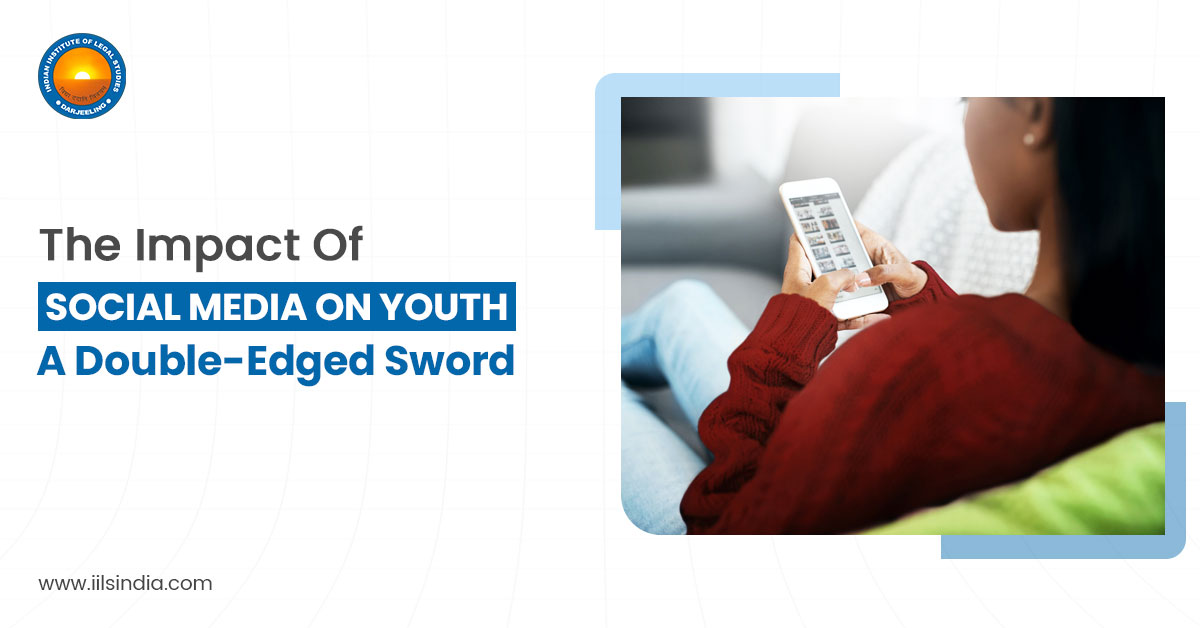In today’s digital age, social media has become an integral part of everyday life, particularly for the youth. Platforms like Instagram, TikTok, Snapchat, and Twitter are not just tools for communication but have evolved into spaces where young people form identities, build relationships, and even engage in social activism. However, while social media offers significant benefits, it also presents challenges that can impact the mental and emotional well-being of young users. Many best colleges for law organise camps whereby they aware the youths on the pros and cons of social media.
The Positive Influence of Social Media
1. Connection and Community Building: Social media enables youth to stay connected with friends and family, regardless of geographical barriers. It offers a platform for creating and maintaining relationships, fostering a sense of community. Young people can find support groups and communities that share their interests or experiences, such as those centered around hobbies, fandoms, or shared struggles like mental health issues.
2. Educational Resources and Opportunities: Platforms like YouTube, LinkedIn, and even Instagram have become valuable educational resources. Young people can access tutorials, educational content, and professional development opportunities. Social media also offers a space for youth to engage in discussions about current events, enhancing their awareness and understanding of the world.
3. Self-Expression and Creativity: Social media provides an outlet for self-expression. Young people use platforms to share their thoughts, art, music, and other creative endeavors. This can boost self-esteem and provide a sense of accomplishment. The viral nature of content can also lead to recognition and opportunities that might not have been accessible otherwise.
4. Social and Political Engagement: Social media has empowered youth to become active in social and political issues. Movements like #BlackLivesMatter, #FridaysForFuture, and #MeToo have gained momentum through social media, driven largely by young people. These platforms allow youth to raise their voices, advocate for change, and mobilize for causes they believe in.
The Negative Impact of Social Media
1. Mental Health Concerns: Despite its benefits, social media can adversely affect mental health. The constant exposure to curated and idealized images can lead to feelings of inadequacy, anxiety, and depression. Cyberbullying is another significant issue, with many young people experiencing harassment online, which can have severe psychological consequences.
2. Addiction and Distraction: The addictive nature of social media can lead to excessive use, impacting productivity and academic performance. The instant gratification and continuous stream of content can make it challenging for young people to focus on offline activities and responsibilities. This distraction can lead to poor time management and neglect of real-life interactions.
3. Privacy and Security Risks: Young people often share personal information online without fully understanding the potential risks. This can lead to privacy breaches and exploitation. Cybersecurity threats, including hacking and identity theft, are significant concerns, especially for those who are not vigilant about their digital footprint.
4. Distorted Reality and Unrealistic Expectations: The portrayal of life on social media often does not reflect reality. Influencers and peers often showcase only the positive aspects of their lives, leading to unrealistic expectations and pressure to conform. This can result in negative body image, low self-esteem, and a distorted sense of self-worth. Finding a Balance To harness the benefits of social media while mitigating its risks, it is crucial for young people, parents, and educators to work together. Here are some strategies to achieve a healthier balance:
- Education and Awareness: Teaching youth about digital literacy, privacy, and the potential psychological impacts of social media is essential. Awareness can help young people make informed decisions about their online behavior.
- Setting Boundaries: Encouraging young people to set boundaries for their social media use can prevent addiction and distraction. This includes setting time limits and prioritizing offline activities.
- Promoting Positive Content: Encouraging the consumption and creation of positive, educational, and inspiring content can enhance the beneficial aspects of social media.
- Mental Health Support: Providing access to mental health resources and support can help young people cope with the pressures and challenges of social media. Open conversations about mental health can reduce stigma and promote well-being.
Conclusion
Social media is a powerful tool that can significantly impact the youth both positively and negatively. While it offers unparalleled opportunities for connection, learning, and self- expression, it also poses risks to mental health, privacy, and overall well-being. By fostering a balanced and mindful approach to social media use, young people can maximize its benefits while protecting themselves from its potential harms. The best colleges for law are always dedicated towards the creation of awareness among the masses especially the youth to develop proper mechanism to harness the benefits of social media and how to protect themselves from its evil.

